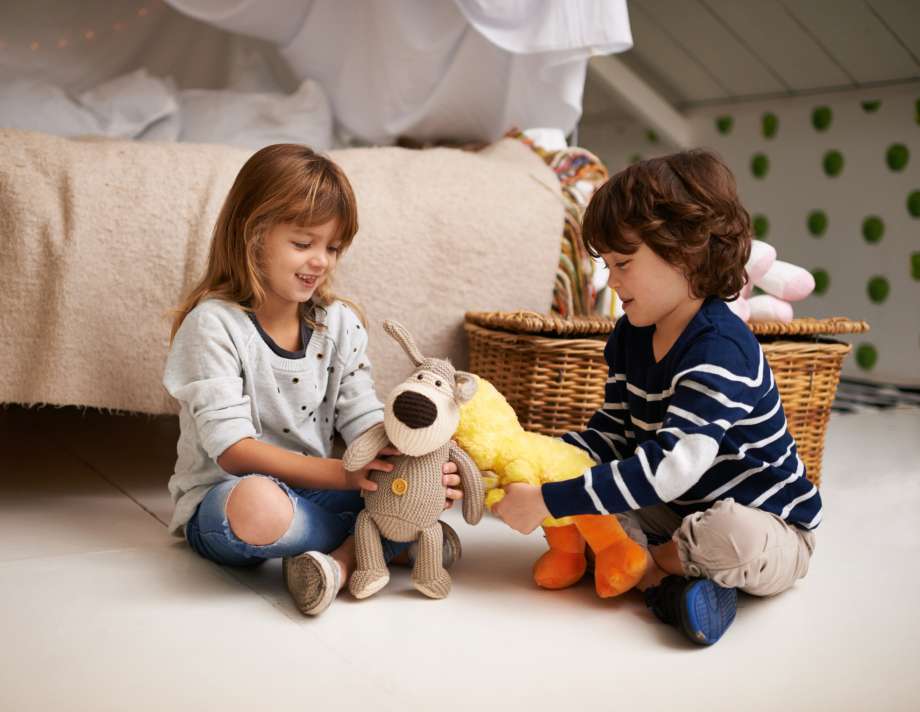Three Effective Parent-Child Communication Strategies
To strengthen your bond with your child, start by actively listening to show you care, set clear expectations for guidance, and encourage open dialogue for trust. By practicing active listening, paraphrasing, and validating feelings, you create a safe space for communication. Setting clear rules and consequences helps establish structure and mutual understanding. Embracing open dialogue fosters a supportive environment for sharing thoughts and feelings. These strategies lay a strong foundation for effective parent-child communication and nurturing your relationship.
Key Takeaways
- Practice active listening to show genuine interest and understanding.
- Set clear expectations to establish structure and guidance.
- Encourage open dialogue to foster mutual understanding and respect.
- Use positive reinforcement to acknowledge and praise desirable behaviors.
- Show empathy and understanding to strengthen the parent-child bond.
Active Listening Techniques

To improve parent-child communication, practice active listening techniques that demonstrate genuine interest and understanding in what your child is saying. Reflective listening is a powerful tool that involves paraphrasing and summarizing what your child has expressed to show that you’re truly engaged in the conversation. By reflecting back their words, you validate their feelings and thoughts, creating a safe space for open communication.
Validation techniques are equally important in fostering a strong parent-child relationship. Acknowledge your child’s emotions and experiences without judgment. Let them know that their feelings are valid and that you’re there to support them. This validation helps build trust and strengthens the bond between you and your child.
Setting Clear Expectations
When setting clear expectations with your child, remember that having clear rules at home provides structure and guidance.
Encouraging open dialogue allows for mutual understanding and respect.
Consistency in your communication style helps build trust and reinforces expectations effectively.
Clear Rules at Home
Establishing clear rules at home is essential for creating a structured environment that promotes positive behavior and healthy relationships between parents and children. Consistent boundaries help children understand what’s expected of them and provide a sense of security. When rules are consistently enforced, children learn to respect limits and develop self-discipline. It’s important to communicate these rules clearly, ensuring that children understand the expectations set for them.
In addition to consistent boundaries, clear consequences play an important role in reinforcing these rules. When children know what’ll happen if they break a rule, they’re more likely to think before acting. Consequences should be age-appropriate and related to the misbehavior to be effective. By following through with consequences when rules are broken, parents establish accountability and teach children about the importance of responsibility.
Open Dialogue Encouraged
Encouraging open dialogue with your child is essential for setting clear expectations and fostering a healthy parent-child relationship. Honest conversations lay the foundation for trust-building between you and your child.
When you engage in authentic connections through vulnerable sharing, you create a safe space where your child feels comfortable expressing their thoughts and feelings.
Research shows that open dialogue leads to better communication and problem-solving skills in children. By encouraging your child to share their perspective openly, you validate their emotions and experiences, strengthening the bond between you.
This approach not only helps in setting clear expectations but also promotes a deeper understanding of each other.
When you prioritize honest conversations and vulnerable sharing, you teach your child the value of open communication and empathy. This sets a positive example for them to follow in their interactions with others.
Consistent Communication Style
Maintaining a consistent communication style is essential for setting clear expectations in your interactions with your child. Communication consistency builds trust between you and your child, creating a secure foundation for your relationship.
By establishing boundaries through consistent communication, your child learns what behavior is acceptable and what isn’t. This clarity helps them feel secure and understand the consequences of their actions.
Consistent feedback is vital in this communication style. Offering praise and constructive criticism consistently helps your child learn and grow. It also shows them that you’re attentive and engaged in their development.
When your communication style is predictable and steady, your child knows what to expect, reducing anxiety and misunderstandings.
Encouraging Open Dialogue

To foster open dialogue with your child, create a safe and welcoming environment where they feel comfortable sharing their thoughts and feelings. Trust building is essential in encouraging your child to open up to you. Show them that you’re a reliable and trustworthy confidant by listening without judgment and respecting their opinions.
Honest conversations are key to nurturing this trust. Be transparent and sincere in your interactions, modeling the behavior you want to see in return.
Encouraging open dialogue involves active listening. Give your child your full attention when they’re talking to you. Validate their feelings and let them know that their emotions are important and valued.
Engage in conversations that are age-appropriate and respectful of their developmental stage. By creating a safe space for open communication, you’re laying the foundation for a strong parent-child relationship built on trust, honesty, and understanding.
Using Positive Reinforcement
Utilize positive reinforcement by consistently acknowledging and praising your child’s desirable behaviors to reinforce and encourage their continued positive actions. By doing so, you aren’t only fostering a sense of accomplishment in your child but also encouraging growth and development. Celebrating progress, no matter how small, can have a significant impact on your child’s self-esteem and motivation.
When your child displays positive behaviors such as sharing toys or completing their chores without being reminded, make sure to offer specific praise.
For example, saying ‘I noticed how nicely you shared your toys with your friend, that was very kind of you’ acknowledges the behavior and reinforces it positively. This positive reinforcement helps your child understand which behaviors are desirable and encourages them to continue these actions.
Practicing Empathy and Understanding

When you practice empathy, you show your child that you understand and care about their feelings, which can strengthen your bond.
Understanding your child’s perspective helps build trust and promotes open communication channels.
Listening with openness allows for meaningful conversations that nurture a supportive and respectful relationship.
Empathy Builds Connection
By actively listening and seeking to understand your child’s perspective, you can cultivate a deeper connection and foster empathy within your parent-child relationship. Building trust and strengthening bonds with your child starts with empathetic communication.
Empathy involves not only listening to what your child says but also understanding their emotions and experiences. When you acknowledge and validate their feelings, you create a safe space for open dialogue and mutual respect.
Research shows that children thrive in environments where they feel heard and understood. By practicing empathy, you demonstrate to your child that their thoughts and feelings are valued, which in turn enhances their self-esteem and emotional well-being.
Empathy also helps you navigate conflicts with your child more effectively, as it allows you to approach disagreements with compassion and understanding.
Understanding Fosters Trust
Understanding fosters trust and strengthens the bond between you and your child, creating a foundation for open and empathetic communication. Building rapport with your child involves actively listening and seeking to understand their perspective.
Research shows that when children feel understood, they’re more likely to trust their parents and share their thoughts and feelings openly.
Trust development is a gradual process that requires consistent effort. By demonstrating empathy and understanding towards your child, you’re showing them that their feelings and experiences are valid. This validation helps build trust and encourages your child to confide in you.
Listening With Openness
To truly connect with your child and foster a strong bond, it’s essential to practice empathy and understanding by actively listening with openness. Reflective listening, a key component of effective communication, involves not only hearing what your child is saying but also understanding the underlying emotions and intentions.
When you engage in reflective listening, you show your child that you value their thoughts and feelings, which can enhance their sense of self-worth and strengthen your relationship.
Empathetic responses play an important role in validating your child’s emotions. By acknowledging and accepting their feelings without judgment, you create a safe space for them to express themselves openly. This emotional validation helps your child feel understood and supported, fostering trust and deepening your connection.
Establishing Trust and Respect
Building trust and respect in parent-child relationships is fundamental for effective communication and understanding between both parties. To establish a strong foundation, focus on building rapport through open and honest conversations. Share experiences, listen actively, and show genuine interest in your child’s thoughts and feelings. By creating a safe and supportive environment, you’re fostering trust and encouraging open communication.
Additionally, setting clear boundaries is essential in gaining respect and maintaining a healthy relationship. Clearly communicate rules and expectations while also being willing to listen to your child’s perspective. Consistency in enforcing boundaries helps children feel secure and understand the importance of respect in the relationship.
Managing Conflict Effectively

Establishing healthy communication habits can help you navigate conflicts effectively with your child. Conflict resolution is an essential skill in any relationship, including the parent-child dynamic. When conflicts arise, it’s important to approach them with effective communication strategies.
Listen actively to your child’s perspective, showing empathy and understanding. Encourage open dialogue by creating a safe space for your child to express their feelings without fear of judgment.
Modeling positive conflict resolution techniques is key. Demonstrate problem-solving skills, compromise, and respect during disagreements. By showcasing these behaviors, you teach your child how to handle conflicts constructively. Remember that conflicts are opportunities for growth and understanding.
Encourage your child to brainstorm solutions together, fostering collaboration and teamwork. Effective communication is the cornerstone of managing conflicts successfully. Clearly express your thoughts and feelings while encouraging your child to do the same. Validate their emotions, even if you don’t agree with their viewpoint.
Frequently Asked Questions
How Can Parents Address Sensitive Topics With Their Children?
When addressing sensitive topics with your child, create open dialogue within set boundaries. Practice active listening and show empathy to understand their perspective fully. This approach fosters trust and allows for meaningful conversations.
What Should Parents Do if a Child Doesn’t Meet Expectations?
When your child doesn’t meet expectations, remember to set boundaries while providing support. Offer guidance and show empathy to help them understand and learn from the situation. Communication and understanding go a long way.
How Can Parents Encourage Children to Share Their Feelings?
To encourage your child to share feelings, practice active listening and emotional validation. Create an open dialogue and a safe space where they feel heard and understood. This helps build trust and strengthens your parent-child relationship.
What Are Some Examples of Positive Reinforcement Techniques?
To reinforce positive behaviors in your child, try using behavior charts and rewards for motivation. Praise and encourage their efforts consistently to build their self-esteem and confidence. Celebrate their achievements to foster a positive parent-child relationship.
How Can Parents Rebuild Trust After a Major Conflict?
To rebuild trust after a major conflict, start by actively listening to your child’s feelings. Show empathy and validate their emotions. Communicate openly, apologize sincerely if needed, and work together on building rapport and reconnecting to strengthen your relationship.
Conclusion
To sum up, applying active listening techniques, setting clear expectations, and encouraging open dialogue can greatly enhance parent-child communication.
By practicing empathy, understanding, trust, and respect, you can create a positive and nurturing environment for effective communication to thrive.
Remember to use positive reinforcement and manage conflicts effectively to strengthen your bond with your child.
Keep up the good work and continue to prioritize open and honest communication with your child.

Chad Adan Kace, a young dad from Vermont, shares his parenting journey with a touch of humor and lots of love. Father to a lively baby, he explores the joys and challenges of fatherhood through his stories.







